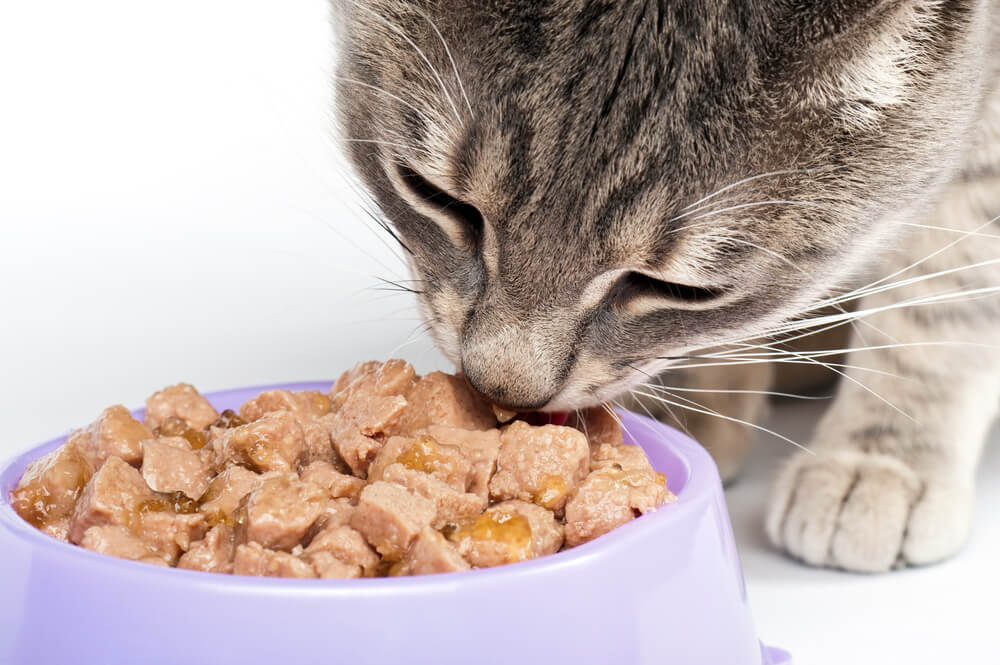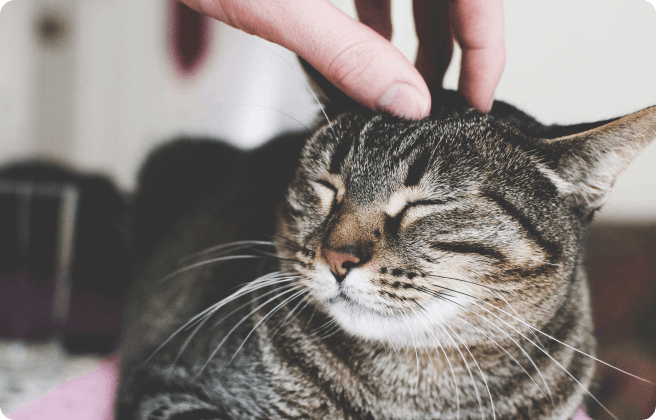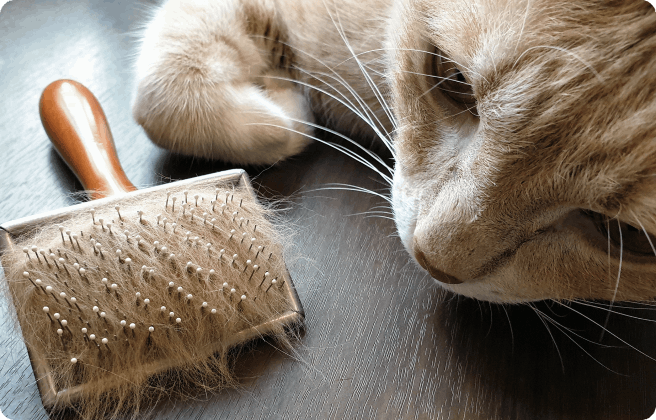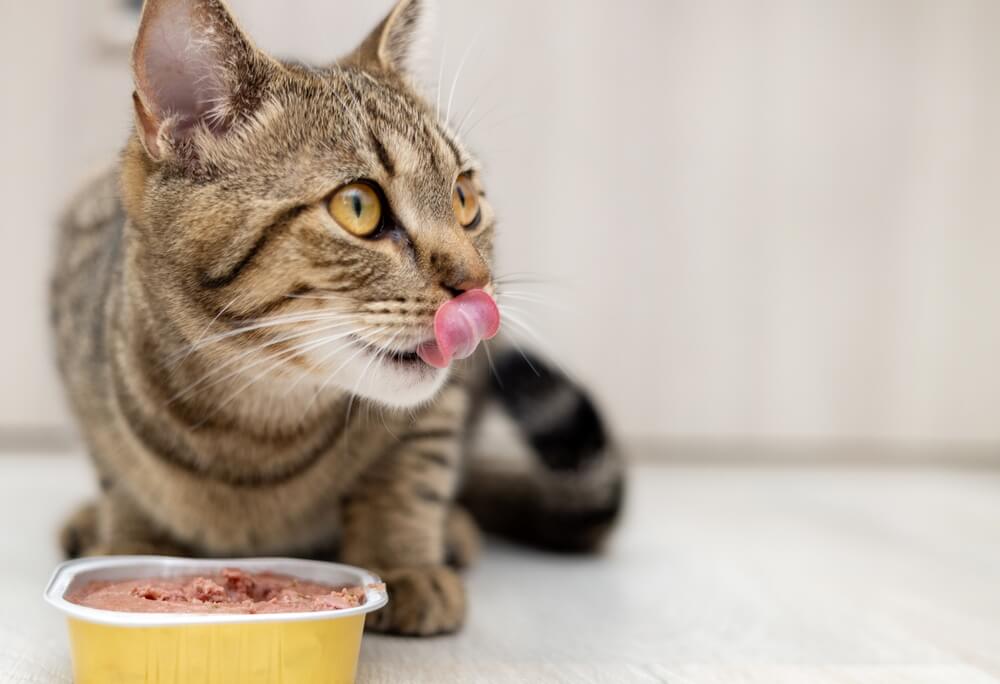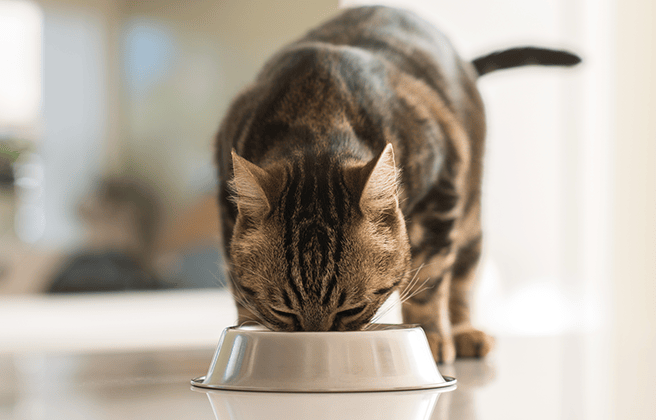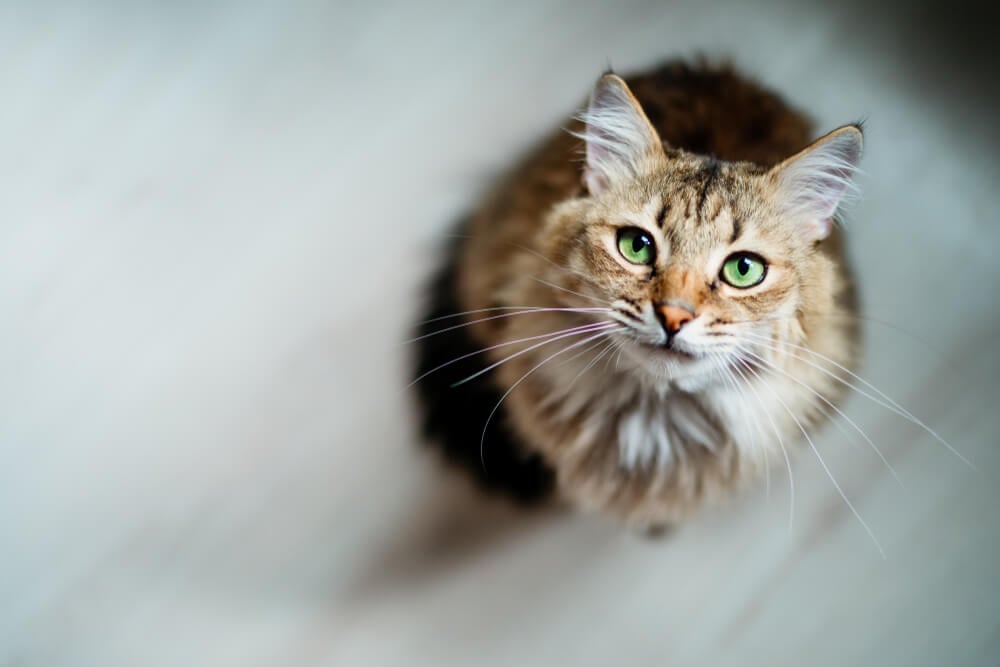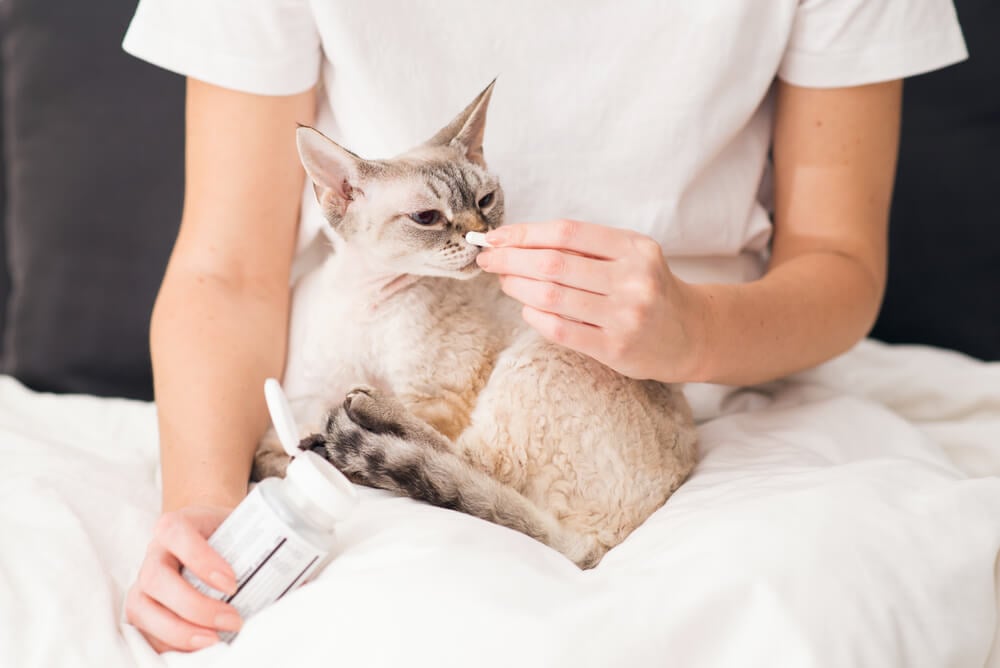
Probiotics for cats could potentially have a huge positive impact on your pet’s health. But, what exactly are probiotics, and should your cat be taking them?
Many pet parents are curious about supplementing probiotics and prebiotics but aren’t sure of the differences and benefits. If consumed correctly with a balanced diet, probiotics and prebiotics can support your cat’s digestive system, boost their immune system, and give them a general health boost.
But, what probiotics are best for cats, and does your healthy cat need probiotics or prebiotics?
Here’s everything you need to know about the minefield of pro and prebiotics for felines.
What are probiotics for cats?
Probiotics are live bacteria — the good kind!
Like humans, cats have tiny organisms (including the gut) forming the microbiome. A cat’s microbiome is crucial for digestion, the immune system, and fighting infection.
“Probiotics for cats balance their microbiome by providing beneficial live bacteria. These bacteria help to keep the gut healthy and support good digestion,” says Laura Ward, CFA nutritionist. They also have many other advantages, such as helping to reduce anxiety and improve immunity.”
These live microorganisms, akin to those naturally occurring in your cat’s intestines, can be consumed through food or supplements to support digestive balance.
Should you give your cat probiotics?
A generally healthy cat should be able to maintain the balance of digestive microbes naturally so while probiotics are not essential, they can benefit all cats.
Should I feed my healthy cat probiotics?
“While probiotics aren’t entirely necessary, they can be a boost to any cat’s diet,” says Laura Ward, CFA nutritionist.
“Your vet may recommend supplementing regular probiotics if your cat struggles with an upset stomach for example as probiotics can be extremely beneficial for the digestive system, allergies, and aging cats.”
When to give your cat probiotics
Additionally, certain situations may disrupt the healthy bacteria and microbiome in your cat and your vet may recommend supplementing probiotics temporarily. For example, antibiotics can negatively affect the microbiome.
Should your cat’s microbiome or dysbiosis change, they might show signs of illness in various ways, including:
- Diarrhea
- Bloating
- Weight loss or gain
- Gas
- Cramping
- Upset stomach
- Bad breath
- General poor health
- Allergies
Changes in your cat’s microbiome can be brought on by several situations, including:
- Stress: Traveling, grooming, boarding, trips to the vet, changes in routine, adding new members to the household (human or another pet) and other life changes can lead to an upset tummy in cats.
- Deworming: When deworming cats, side effects (though uncommon) may include an upset stomach with vomiting and diarrhea.
- Antibiotics: Antibiotic therapy can make cats sleepy and cause digestive imbalance.
- Dietary changes: Transitioning to a new cat food can disrupt your cat’s digestion. 1
Benefits of probiotics for cats
The main benefit of probiotics for cats is that they maintain a harmonious balance of gut bacteria. Therefore, they can be a good solution for diarrhea, upset stomachs, and general gastrointestinal upset.
In turn, probiotics can help with hairballs. Cats tend to swallow hairballs, which can cause vomiting and other digestive problems. Probiotics may help prevent this by supporting the growth of beneficial bacteria in the intestines.
Probiotics also aid in the prevention of hairball formation in the stomach by assisting in the breakdown of hair into smaller pieces that can be more readily passed through the digestive system. 2
The microbiome links to many areas of health across the entire body.
“Microbiome diversity and probiotics are shown to support brain health and the reduction of anxiety, via the gut-brain axis,” says Laura. “If you think about stomach upset when you’re stressed or how you feel lethargic after eating loads of junk food.
“The microbiome can also benefit allergies and help to reduce itching. A huge percentage of the immune system lies within the gut, so a healthy microbiome supports immune health as the first line of defense.”
Types of probiotics for cats
There are many probiotics supplements available for cats which come in many different forms including:
- Cat food
- Treats
- Pills
- Powders
It’s a good idea to consult your vet to ensure it matches your cat’s diet and they will be happy to recommend a suitable option.
What foods are high in probiotics for cats
Certain human probiotics are safe for cats if given in moderation and served plainly. Fermented vegetables such as sauerkraut, kimchi, or fermented carrots can be safe for cats, although may not be appealing for our little carnivore friends.
Many pet parents like giving their cat green tripe as it stays true to their cat’s ancestral ‘whole prey’ diet. Tripe is the muscle tissue from the stomach of animals like pigs, cows, and sheep. Green tripe – the raw, unbleached, uncooked variety. It’s becoming popular in various cat foods and treats so have a look out for it on the ingredient lists.
Should I feed my cat yogurt?
Many cats become lactose intolerant as they age, making most dairy products risky. Yogurt, however, is safe for cats. Unlike other dairy products, the lactose in yogurt is already broken down. This makes it easier for cats to digest even if they can’t handle milk, butter, or other dairy products.
“Yogurt and kefir are full of calcium, protein, and probiotics that are great for cats’ health. However, make sure to feed in small amounts, and avoid yogurt that contains sugar, sweeteners, and vanilla, says Laura.”
If in doubt, opt for cat-specific probiotics as certain human foods and ingredients can be toxic for cats.
What are prebiotics for cats?
While probiotics help maintain balance in the microbiome and can inhibit bad bacteria, prebiotics nourish the good bacteria, boosting their growth and impact. Additionally, they improve the health of the gut itself by fortifying the intestinal barrier.
Your furry friend may need a combination of cat prebiotics and probiotics to maintain and improve their gut. Cat foods and supplements formulated to promote digestive health will likely contain both.
“By feeding probiotics you are boosting the levels of the live beneficial bacteria within the gut, says Laura. “Whereas prebiotics support the beneficial gut bacteria providing the means for them to flourish.”
Probiotics and prebiotics can be fed individually to benefit microbiome health and good digestion, however, in combination their impact is boosted.
Do probiotics or prebiotics have any side effects for cats?
When adding anything to your cat’s diet, there are certain things to look out for. While probiotics and prebiotics are usually safe, your cat may initially experience diarrhea, constipation, bloating, or gas.
This is usually just a sign of your cat’s digestive system adjusting to additional bacteria in their body and it may just take some time before it gets better. If this does occur, reduce the supplement and gradually introduce it – it’s an adjustment phase.
Generally, adding probiotics and prebiotics will benefit your cat and should not have any negative impacts if consumed correctly. If in doubt, consult your vet and evaluate your cat’s diet as a whole to get to the root of the problem.
We uphold the highest editorial standards when creating the authoritative content pet parents rely on and trust.
Every piece of clinical content on the Cat Food Advisor is reviewed by our certified Veterinary Advisory Board, which consists of licensed veterinarians and medically certified specialists.
Our reviews are completely independent; we are not paid by any pet food company to promote their products favorably. We do not accept money, gifts, samples or other incentives in exchange for special consideration. For more information see our Disclaimer & Disclosure page.




